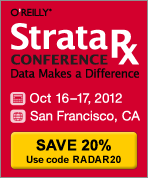Marcia Kean of Feinstein Kean Healthcare answered a request by the Institute of Medicine to design a better way to do cancer research, and helped write a proposal that led to the establishment of the Data Liquidity Coalition. In this video interview, Kean describes the benefits of data sharing for researchers, pharmaceutical companies, and patients. She describes the goals and initial activities of the coalition, and describes the effects it can have on research, patients, and physicians.
Highlights from the full video interview include:
- Reasons for the Data Liquidity Coalition. [Discussed at the 0:16 mark]
- Origins at the Institute of Medicine. [Discussed at the 1:20 mark]
- Value of data sharing for cancer researchers. [Discussed at the 2:30 mark]
- Value of data sharing for patients and their physicians. [Discussed at the 5:05 mark]
- Proprietary systems and open interfaces. [Discussed at the 6:45 mark]
- Getting patients involved and developing advocates for sharing. [Discussed at the 10:04 mark]
- Clinical studies in an ecosystem of large data sets. [Discussed at the 14:31 mark]
- 15:22 Roles for computer programmers, IT businesses. [Discussed at the 15:22 mark]
- 17:34 Why the time is ripe for data liquidity. [Discussed at the 17:34 mark]
- Role models for data sharing. [Discussed at the 20:03 mark]
 Strata Rx — Strata Rx, being held Oct. 16-17 in San Francisco, is the first conference to bring data science to the urgent issues confronting healthcare.
Strata Rx — Strata Rx, being held Oct. 16-17 in San Francisco, is the first conference to bring data science to the urgent issues confronting healthcare.
